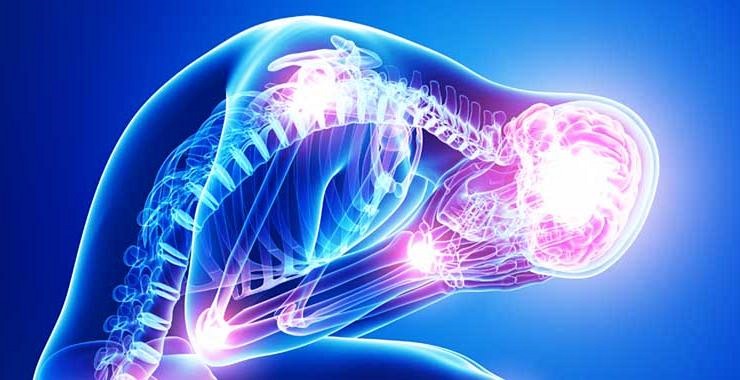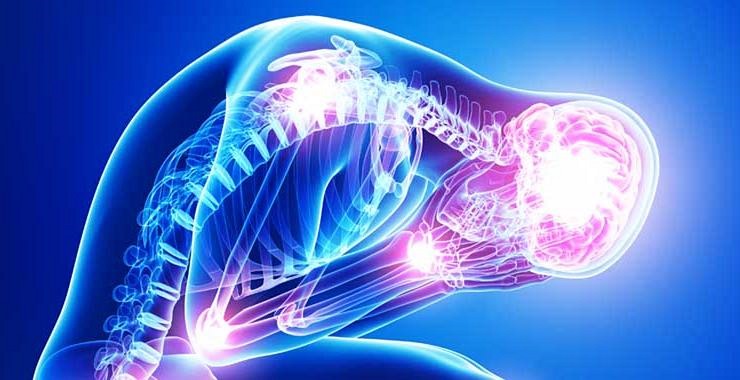Last Updated on: 18th December 2024, 12:30 pm
Stress significantly influences physical performance through physiological and psychological responses. Physiologically, it prepares the body for action, but excessive stress can harm health and performance. Psychologically, stress affects motivation and focus, impacting physical challenges. Understanding stress’s impact is crucial for optimizing performance in sports, fitness, or daily life. Mastering stress can help turn challenges into achievements.
The Physiology of Stress and Its Impact on the Body
The Autonomic Nervous System: The Stress Response Conductor
The autonomic nervous system orchestrates the body’s reaction to stress, switching between rest-and-digest and fight-or-flight modes. This system’s activation affects the entire body, preparing it for immediate action.
Cortisol and Adrenaline: The Body’s Stress Messengers
Cortisol and adrenaline are stress hormones that increase heart rate, elevate blood pressure, and boost energy. Cortisol regulates vital body functions, while adrenaline energizes muscles for swift responses. Together, they fine-tune the body’s stress response.
Physical Manifestations: The Body’s Adaptations to Stress
- Heart rate increases, pumping blood efficiently to muscles and organs.
- Blood pressure rises, ensuring oxygen and nutrients reach all body parts.
- Muscles tense, ready for action.
These adaptations are essential for short-term performance but can harm health if stress is chronic. Managing stress is crucial for optimal physical performance.
Understanding stress and the body’s response helps harness stress positively. Recognizing stress signs and learning to modulate responses can turn obstacles into opportunities for improved performance and well-being.
The Direct Impact of Stress on Physical Performance
Reduced Physical Endurance and Strength
Stress diverts resources to essential functions, reducing endurance and strength. This shift decreases physical performance, making it hard to maintain activity levels.
Impaired Coordination and Reaction Time
Stress affects motor skills, slowing reaction times and reducing movement precision. This impacts performance and increases injury risk.
Respiratory and Cardiovascular Efficiency
Stress strains the respiratory and cardiovascular systems, leading to quicker fatigue. Shallow or rapid breathing reduces oxygen intake, compromising performance. Managing stress is crucial for cardiovascular health and lung function.
Understanding stress’s impact on performance highlights the importance of stress management techniques. Practices like deep breathing, mindfulness, and regular physical activity can enhance performance by mitigating stress effects.
Psychological Aspects of Stress Affecting Performance

Anxiety, Fear, and Their Impact on Concentration and Focus
Anxiety and fear impair concentration and focus, diverting cognitive resources from tasks. This reduces performance, as focus is crucial for peak outcomes. A distracted individual is less responsive to physical demands, decreasing performance.
The Relationship Between Stress and Motivation Levels
Stress initially motivates but can drain motivation when overwhelming. This decline occurs as stress overtaxes resources, leaving little energy for goals. Maintaining optimal stress levels is key to sustaining motivation and performance.
Stress-Induced Fatigue and Its Consequences on Performance
Chronic stress leads to fatigue, reducing the body’s performance ability. Stress-induced fatigue affects endurance, strength, and mental sharpness. Addressing this fatigue is crucial for improving physical capabilities.
Understanding stress’s psychological aspects is essential for optimizing physical abilities. Managing anxiety, maintaining motivation, and combating fatigue enhance focus, concentration, and performance.
Coping Mechanisms and Strategies to Mitigate Stress
Physical Activity: A Natural Stress-Buster
Physical activity releases endorphins, improving mood and reducing stress. Activities like walking, gym sessions, or yoga can lower stress levels, enhancing performance.
Mindfulness and Meditation: Anchors of Calm
Mindfulness and meditation focus on the present, cultivating calm awareness. Regular practice improves stress resilience, concentration, and mental clarity, crucial for performance.
Nutrition and Sleep: The Foundations of Stress Management
Proper nutrition and sleep form the foundation of stress resilience. A balanced diet provides nutrients to cope with stress, while sleep restores the mind and body. Prioritizing these enhances stress management and performance.
Incorporating these strategies mitigates stress effects, unlocking potential in performance and well-being. Embracing physical activity, mindfulness, and self-care helps navigate stress and thrive under pressure.
Case Studies and Research Findings: Athletes, Stress, and Performance

Insights from Research on Athletes and Stress
- Impact on Performance: Studies show stress impairs athletes’ capabilities, leading to burnout.
- Elite Swimmers: Higher stress levels correlate with slower reaction times.
- Basketball Players: Stress affects shooting accuracy.
Real-life Success Stories: Stress Management in Action
- Soccer Team: Yoga and mindfulness improved focus, reduced injuries, and increased wins.
- Marathon Runner: Biofeedback and visualization improved personal best times.
The Long-Term Effects of Stress on Athletes
- Chronic Stress: Linked to increased injury risk, longer recovery, and early retirement.
- Overtraining Syndrome: Characterized by fatigue, mood disturbances, and decreased performance due to stress hormone release.
Conclusion: Understanding stress and performance is crucial. Effective stress management is essential for athletes aiming for longevity and peak performance. Research and examples help develop strategies to combat stress, ensuring peak performance.
Conclusion
Stress influences physical performance. Managing stress through strategic techniques, mindfulness, and conditioning enhances performance and well-being. Approach stress as a stepping stone to achieving aspirations.

